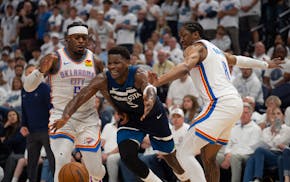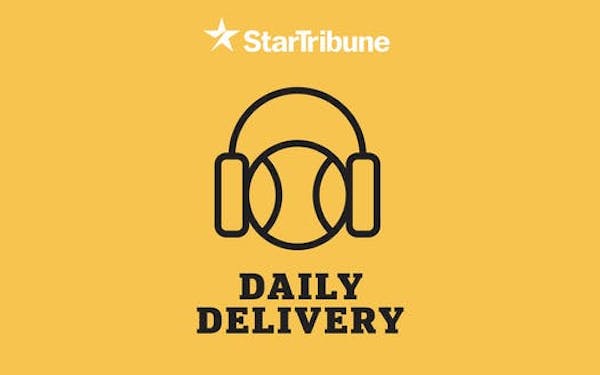Thirty years ago, on March 10, 1993, the North Stars moved from Bloomington to Dallas.
Minnesotans remember the vilification of owner Norm Green and the end of a beloved franchise.
Ralph Strangis, who broadcast North Stars and Dallas Stars games, remembers it differently.
"You've got nothing but winners in this story,'' he said.
The North Stars' run to the Stanley Cup Final in 1991 whitewashed this reality: The franchise was poor and poorly run. Attendance at Met Center, which was a dump, was low. No local businesspeople had interest in buying the team.
"They couldn't find anyone local who wanted to get into ownership,'' Strangis said. "It was never marketed as part of the Minnesota hockey experience. The move worked out great for both markets, because Minnesota finally got the restart they needed.''
The Stars were an immediate hit in Dallas and developed a team that would win the '99 Stanley Cup. Minnesota acquired an expansion franchise that boasts local ownership, plays in a beautiful arena and is smart enough to position itself as the mecca of Minnesota hockey.
Whether because of the suit, a fan base that had learned to hate him, or an unfavorable deal with the Met Center and the Minneapolis Sports Facilities Commission, Green felt he had to move.
Strangis said Green tried to move to Anaheim, but Disney elbowed him out of the way. He tried to move to Florida, but Blockbuster and Wayne Huizenga beat him to it.
Finally, Dallas Mavericks owner Don Carter made it known he would welcome a new tenant at Reunion Arena. "Don Carter became a great friend of our franchise,'' Strangis said. "He has a Stanley Cup ring.''
What seemed strange about the move at the time was that Minnesota was the home of hockey in America, the place that produced many of the key figures in the Miracle on Ice. Dallas was known for hot weather, Tex-Mex and football.
Strangis remembers speaking to "about 50'' groups about hockey, and the Stars developed a strong relationship with a new talk radio station, The Ticket.
Dallas-area sports media frustrated by the Dallas Cowboys' media restrictions knew they could drop by the Stars' facility a few blocks away and get all the time they wanted with Stars star Mike Modano or coach Ken Hitchcock.
"We planted our flag everywhere we could,'' Strangis said.
Longtime Dallas Morning News columnist and radio star Randy Galloway became a fan. On his radio show, Galloway said, "Man, I love this game. These guys hit each other with sticks and punch each other in the face!''
One afternoon, a woman with a chicken-fried accent called in and asked, "Randy, how many players are on the ice for each team?'' After a long pause, Galloway said, "Well, let's see, you got your goalie…' ''
Dallas Morning News sportswriter Kevin Sherrington grew up in Texas and knew nothing about hockey. "I'd go to the game and sit next to our hockey writer and he'd say, `That was a good shift,' " Sherrington said. "And I'd say, `How can you tell?'
"The funniest part of all this was Galloway's reaction. I think he just liked the fighting. Also, the Texas Rangers had never won anything, and the Mavericks hadn't won anything, and the Cowboys were just starting to bubble up. Here a hockey team moves here and almost immediately they're really good, and the games were indoors, so you never had to worry about the weather.''
Strangis said Green wanted to build a skyway from the Mall of America to Met Center, and was turned down. Any real-estate deal that Green tried to put together to keep the North Stars in Minnesota went nowhere.
"So we all move to Dallas, and there are maybe two sheets of ice in the entire Metroplex,'' Strangis said. "And we went from that to a Stanley Cup title and a powerhouse franchise, and Minnesota gets the Wild, and the Wild becomes the franchise the North Stars should have been.
"That's why I say there are no losers in this story.''
Souhan: For Lynx star Napheesa Collier, 'Phee' is just fine
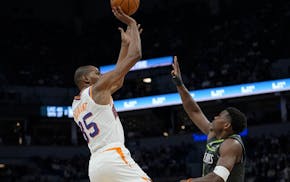
Souhan: Will the Wolves trade for Kevin Durant? Should they?
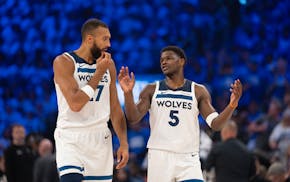
Souhan: If Edwards is a franchise player, he needs to act and play like it
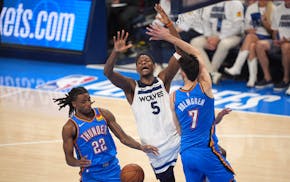
Souhan: Wolves' weak performance in Game 5 invites change, so don't let it shock you
